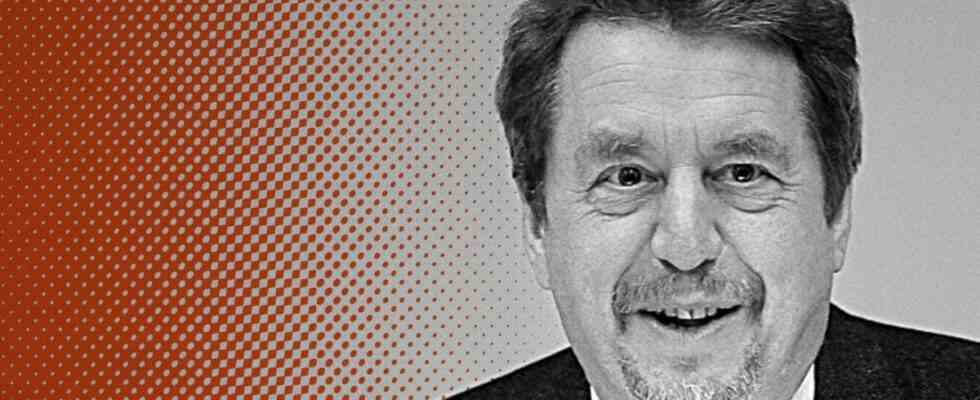Hans Joas, born in Munich in 1948, is interested in how values come into being. He is Ernst Troeltsch Professor of Sociology of Religion at the Humboldt University in Berlin and also at the University of Chicago. Most recently he published “Why Church? Self-optimization or faith community” (Herder 2022). At the end of September, Hans Joas received the award from the German Society for Sociology for “outstanding academic life’s work”.
SZ: What are you reading right now?
Hans Joas: Lots of Danish – for a personal reason: I want to understand the culture in which our granddaughter Marie is growing up. I am particularly enthusiastic about a classic Danish novel, namely Henrik Pontoppidan. Years ago I read his “Hans im Glück” (“Lykke-Per”), which Ernst Bloch and Georg Lukács also thought was one of the greatest novels of their time, and also his similarly important “Realm of the Dead”. Now “The Promised Land” was added, a gripping Tolstoy-esque book about a gospel-oriented life in a society of great social inequality. In between I read essays by the important Polish poet Adam Zagajewski, who died last year (“Poetry for Beginners”) because, as his longtime colleague in Chicago, I was allowed to give the opening lecture at a memorial service in Kraków.
Which classic did you read far too late in life?
I would prefer not to name a literary work here, but rather a literary namely Erich Auerbach, “Mimesis”, Written in Turkish exile around 1940. I only read this three years ago, but it completely changed or renewed my view of everything I had read before, including the gospels. Very close to the texts of “Western” literature from Homer to Virginia Woolf and in wonderful German, this is about the relationship between ideal and reality, about sublime style and drastic realism in the story of storytelling.
Which book explains the whole world best for you?
Without hesitation, I say here: Alfred Döblin, “Berlin Alexanderplatz”. It is so much more than those who assume that it is a document of social realist literature from the Weimar Republic or a mere experiment in modern storytelling. I find in it the greatest existential depth in a brash Berlin tone. It even played a role in my decision as a student to live in the city where it is set. However, the tension between trying to change the world politically or living your own life and having to learn to take the blows of fate is not dependent on the location. Anyone who takes this book seriously will no longer speak of “simple people” when they mean poorer people.
What was the last book that made you cry?
I actually never cry while reading and I tend to freeze as soon as it gets really serious and sad. That’s how I felt most when reading Varlam Shalamov’s “Tales from Kolyma”, laconic prose about the Gulag.
Do people need literature?
You bring that up because I wrote something about the question of whether man needs religion. My answer was that of course people can live without religion and often do in our time and area, but they too cannot do without the experiences that lead some to faith. Similarly, to answer your question, I would say that human beings cannot live without feeling the need to tell and acknowledge narratives, to express experiences in ways that are not aimed at rational purposes or arguments, role-playing or watching others do it with pleasure. For some, however, literature – epic, lyrical, dramatic – offers all of this in heightened and concentrated form, and they cannot imagine life without it.
Morality and literature, how are they connected?
The answer is of course influenced by what we mean by morality. If we think of it as a collection of regulations that we have to adhere to and which therefore also limit our freedom, then literature, if it doesn’t come across as moralizing itself, represents a fantastic free space for exploring ourselves and the world understand something much more by morality and also mean the ideals that seize us and lead us beyond the given world, then literature can make it sensually experienceable. Our life is placed in the space between our ideals and our weaknesses.
Read more episodes of the interview column here.

